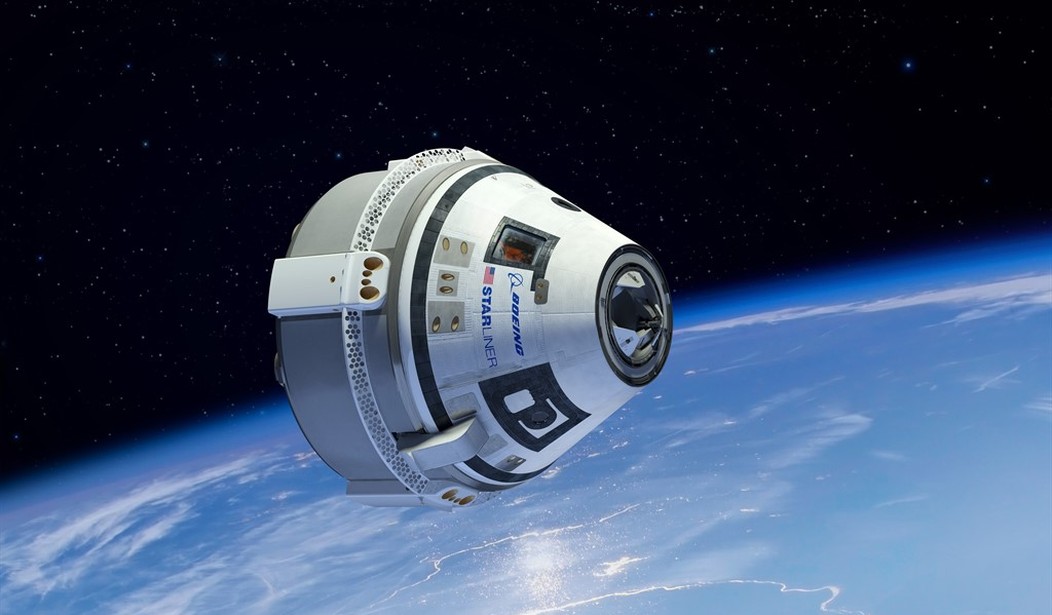It wouldn't be fair to blame troubled passenger-jet manufacturer and occasional spaceship maker Boeing for Saturday's scrubbed Starliner manned test flight to the International Space Station (ISS).
The mission was called off with less than four minutes left on the countdown due to a computer problem with the Atlas V launch vehicle, and Atlas is the baby of United Launch Alliance — which is only half-owned by Boeing. Rockets are complicated beasts, however, and even proven systems like Atlas (the Atlas I first flew in 1957, and the modernized Atlas V has been in service since 2002) develop glitches.
At three minutes and 50 seconds before Saturday's scheduled 12:25 p.m. Eastern launch, a launch sequencer in one of three redundant ground control computers showed an anomaly that triggered an automatic abort. There was nothing wrong with Starliner. There was nothing wrong with the Atlas V, just a buggy computer card that needed to be swapped out, but that couldn't be done in time for the June 2 launch window.
The next launch window isn't until June 5, so mission commander Barry Wilmore and pilot Suni Williams disembarked once again to spend some additional extra time in pre-launch quarantine. Fun!
But I'm starting to wonder if Starliner isn't cursed, and I am not a superstitious man.
To briefly recap.
Before the Space Shuttle program ended in 2011, the 2010 NASA Authorization Act put money aside for its smaller-scale replacement, known as the Commercial Crew Program — a new spaceship to ferry American astronauts to and from the ISS.
Things got real when Russia first invaded Ukraine in 2014 and the resulting sanctions started the countdown clock for when we would no longer have access to Russian vehicles.
Recommended: The Dirty Little Secret Behind Biden's Stealth Mass Amnesty
After the competitive bidding process ended in 2014 — for a fixed-price contract, if you can believe that — SpaceX eventually received $2.6 billion to develop Dragon Crew, and Boeing won $4.2 billion for Starliner. Jeff Bezos's Blue Origin was shut out, but that was probably for the best, as I might get into in a future column.
Dragon Crew flew its first manned mission to ISS in 2020 and has since delivered astronauts there (and back!) about half a dozen times. Meanwhile, Saturday's scrubbed Starliner flight was originally supposed to have flown in 2017, and while I'm no math whiz, I'm pretty sure that's seven whole years ago.
Starliner has had one unmanned test flight that failed. There was another unmanned test flight that, while successful, showed concerns with the unexpected ways the heat shield burned away. The first manned test flight has been scrubbed repeatedly since May, twice because of issues with the Atlas rocket and once because of a helium leak in Starliner's maneuvering thrusters that also revealed a potentially fatal design flaw. NASA and Boeing say they've developed a workaround for that, but the leak remains.
Thanks to that fixed-price contract, Boeing has lost an estimated $1.4 billion on the company's manned spaceship that has yet to fly a man, woman, or Other into space. As a result of the endless delays, Boeing seems unlikely to earn back their losses. Starliner will get at most six ISS missions while Dragon Crew has been awarded 14. That's what happens when your spaceship won't fly.
Hopefully, Starliner will hit that window on June 5, and Wilmore and Williams will enjoy their stay on ISS. But between years of delays, a failed launch, too many hardware and software glitches to count, and on Saturday another issue with Starliner's launch vehicle, I can't help but wonder if the whole program is cursed.










Join the conversation as a VIP Member